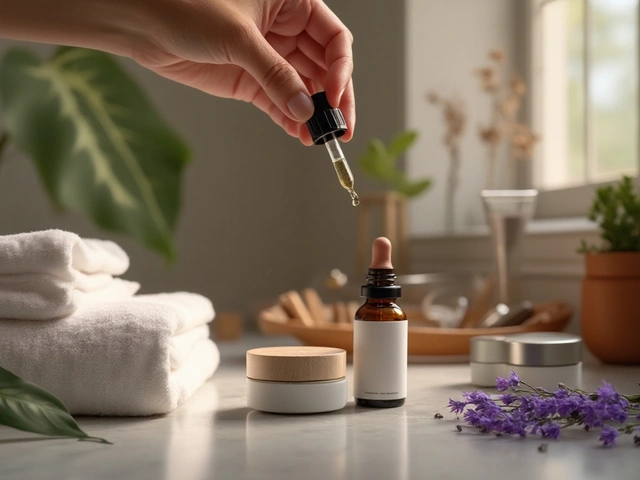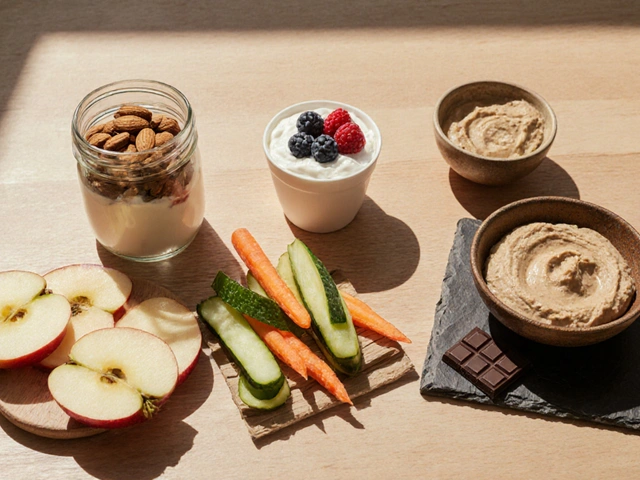Personal Development: Simple Daily Habits for Real Growth
Change doesn’t have to be dramatic to matter. Small, consistent moves—three minutes of breathing, one healthy snack swap, a five-minute check-in—add up faster than big, rare efforts. If you want better focus, fewer mood swings, and more energy, start with tiny habits you can actually keep.
Daily habits you can do right now
Mindfulness and gratitude: spend two minutes each morning breathing and naming one thing you’re grateful for. That alone lowers stress and makes decisions clearer. Try a short guided session on a top mindfulness app if you struggle to sit quietly.
Meditation for emotional balance: aim for five minutes after lunch or before bed. Use a simple focus like counting breaths or scanning the body. It helps cut reactivity—so you don’t snap at a message or overreact to small setbacks.
Healthy snacks and energy: swap one processed snack for a protein-rich option—Greek yogurt, a handful of nuts, or hummus and carrot sticks. That keeps blood sugar steadier and stops stress-eating later.
Move and recover: if you exercise, add a short recovery routine. Ten minutes of foam rolling, light stretching, or a targeted sports-massage session every few weeks speeds healing and prevents injuries. Even non-athletes benefit from weekly muscle care when stress tightens the body.
Weekly actions that actually change things
Set one clear micro-goal each week. Don’t say “get healthier.” Say “walk 20 minutes four times” or “read one chapter about sleep.” Break goals into tiny steps and track them. Checking progress keeps motivation real.
Try a creative therapy exercise: spend 20 minutes painting, free-writing, or playing a song—even badly. Creative expression lowers anxiety and reveals emotions you can’t name. No skill required—focus on the process, not the result.
Check your gut and sleep: simple changes—eat more fiber, reduce late-night snacks, and set a consistent sleep time—often improve mood and focus. Gut health affects energy and stress response, so think of food as part of your personal development plan.
Deal with fear and anxiety using a short toolkit: box breathing (4-4-4-4), progressive muscle relaxation for five minutes, and labeling thoughts (“that’s anxious thinking”) can break panic cycles. Use these before big meetings or when you feel stuck.
Keep it practical: pick three of the habits above and commit to them for two weeks. Notice what changes in your mood, energy, and focus. Adjust as you go—personal development is iterative, not perfect. Small steps build confidence, and confidence fuels bigger steps.
Want a boost? Try an app for guided meditation, schedule a monthly massage for sore muscles, or swap one sugary snack for a protein choice this week. Little changes, done often, are what actually move the needle.
Unlock Your Full Potential with Health-Focused Goals
Unlocking your potential through health goals can lead to significant improvements in both physical and mental well-being. By setting clear, specific objectives, individuals can enhance their lifestyle, overcome challenges, and achieve sustainable growth. This approach not only supports physical health but also nurtures mental clarity and emotional resilience, empowering individuals to realize their full potential. With practical tips and inspiring facts, discover how health goals can be transformative.
View MoreEnhancing Personal Growth Through Stress Management
Exploring how stress reduction plays a crucial role in personal development. The article delves into practical ways to manage stress and highlights the benefits of stress reduction on mental health and overall well-being. Learn tips and techniques to integrate stress management into daily life for better personal growth and self-improvement.
View More






